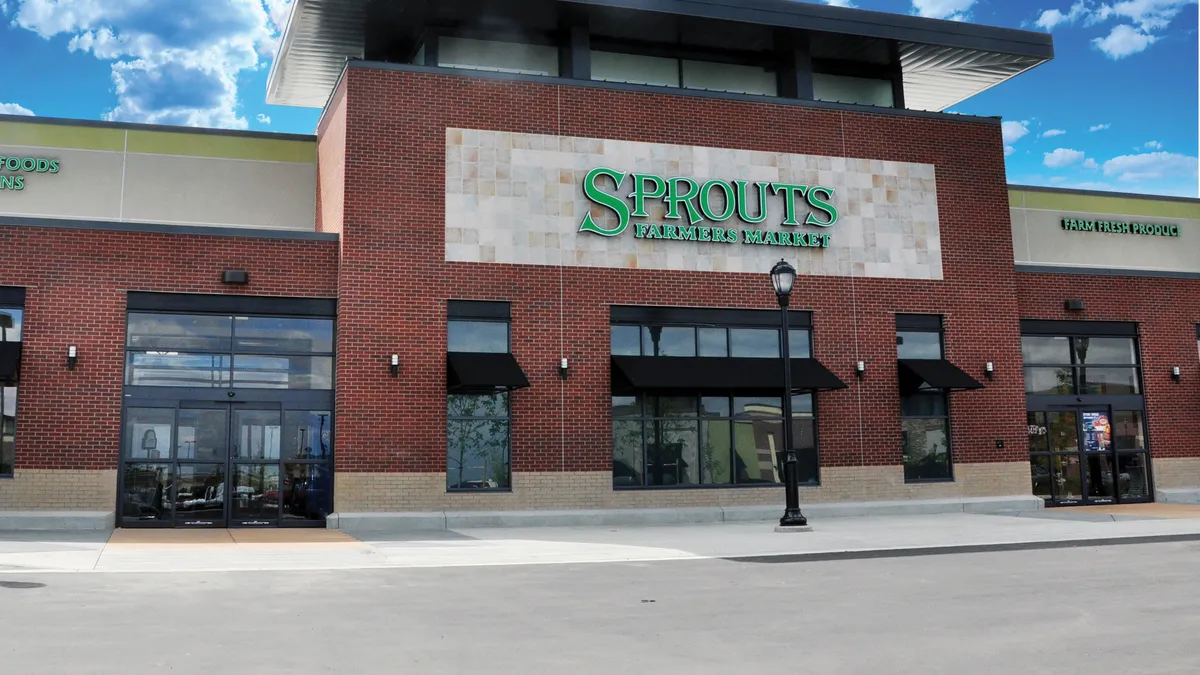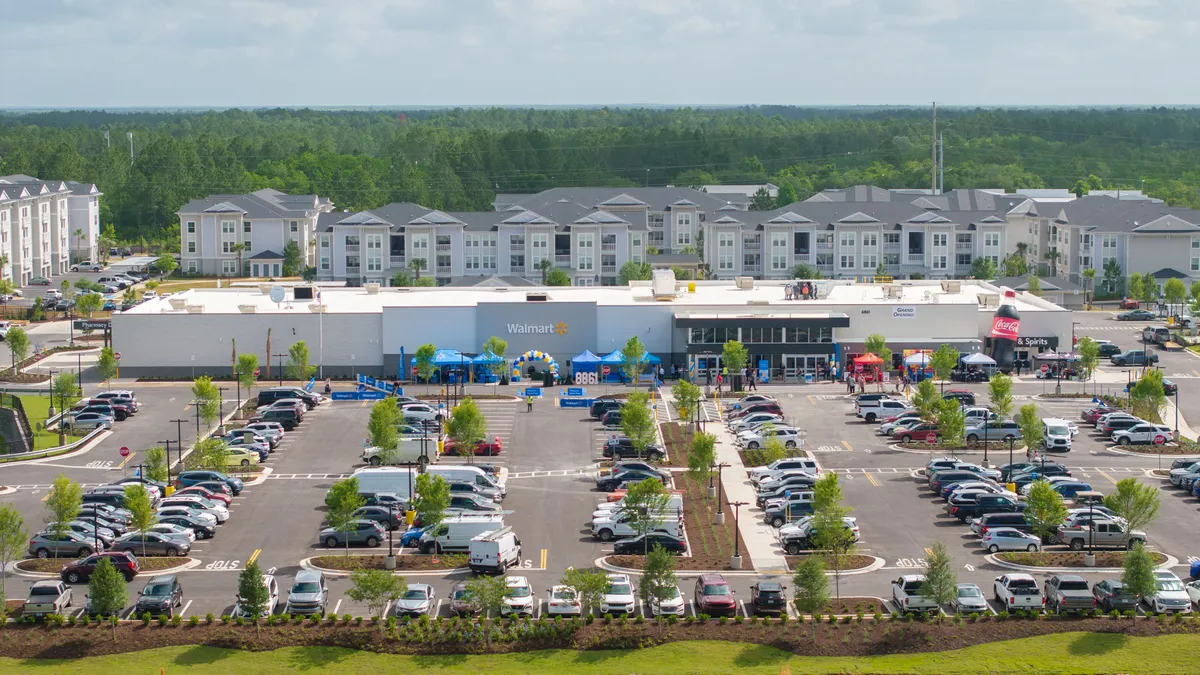Dive Brief:
- Sprouts Farmers Market reported net sales of $1.1 billion for the fourth quarter ended December 31st, 2017, a 16% increase over the same period last year, according to a company release. Driving those gains was a comp-store sales increase of 4.6% — the latest in a string of strong comps for the natural and organic retailer.
- Sprouts officials see comps moderating in the next quarter, however, noting that a calendar shift in Q4 reporting period contributed to gains. In 2018, the company expects comp-store sales to fall between 2.5% and 3.5%, with earnings per share of $1.22 to $1.28. Sprouts will also gain a $30 million benefit from tax reform, and plans to use one third of those funds to increase wages and benefits for its workers.
- The company saw gross profits increase 17% in Q4, to $324 million. For the 2017 fiscal year, Sprouts reported net sales of $4.7 billion, up 15% over 2016, and comp-store sales growth of 2.9%.
Dive Insight:
Sprouts performed admirably in last year’s deflationary environment, and it continues to make gains as food prices increase once again. The company has a unique model — small stores, low prices and a health-focused mission — and is putting money behind high-growth initiatives like private label, fresh foods and home delivery.
But will investors ever fully come around to the retailer? A string of strong results — including back-to-back 4.6% comps and earnings-per-share growth of 22% in 2017 — has bumped up its share price by around 26% over the past year, to more than $25. But go back to 2015, when Sprouts’ stock price was approaching $40 or 2013, when it approached $50, and it’s clear Wall Street isn’t quite sold on the company.
Increasing competition — and specifically, Whole Foods and Amazon, which compete in the same natural and organic space as Sprouts — is a major reason. As the e-tailer brings prices down at the specialty grocer and pumps more customers into stores and onto its site through the formidable Prime membership program, it threatens to poach directly from Sprouts.
Sprouts, for its part, maintains it can co-exist alongside Amazon. In a recent interview with Food Dive, CEO Amin Maredia said his company isn’t trying to go toe-to-toe with the online giant. Rather, it has its crosshairs trained on the thousands of traditional grocery stores that he characterized as out-of-touch, off-trend and operationally musclebound. Maredia maintained this stance in Thursday’s earnings call with analysts.
“Where we see a lot of stores that are not trend-driven, customer-driven, those [markets] are exciting to us,” he said.
It’s a compelling angle, and one that needs to time to play out. This year, Sprouts will open thirty new stores and push further into the highly competitive mid-Atlantic region, where it will open its first store next month in Ellicott City, Maryland. It’s bulking up its private label offerings, with an emphasis on fresh brands that appear in the deli and meat/seafood departments, as well as its prepared foods.
Sprouts is also focused on expanding online delivery to more stores, since doing so extends the reach of each location. The company partners with Amazon Prime Now in eight markets, though questions have swirled over the future of that relationship (Maredia declined to address the partnership Thursday, and in his interview with Food Dive said the partnership would not change anytime in the near future). Last month, Sprouts teamed up with Instacart to offer ordering and home delivery in the major markets where it operates.
“Our goal is to have home delivery in all our major markets by year’s end,” Maredia said Thursday.
As Sprouts moves further into the mid-Atlantic, observers should watch closely to see how the chain stacks up against some of the toughest competitors in the industry. If it can make sales gains in these markets and maintain its brisk store growth, expect investors to really get behind the company.










